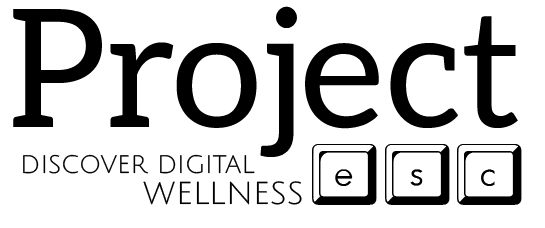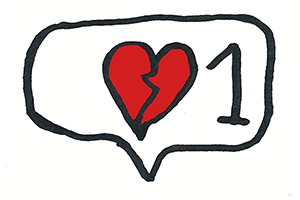Petitions and social media often share the news and invite us to engage with campaigns – so if we sign out, how can we stay informed?

This week, an anti-Brexit petition calling to revoke Article 50 was set up online, and on 22 March it passed three million signatures. That’s over three million people who signed into petition.parliament.uk to challenge something and share their views. But with many people leading offline lives, or taking a digital detox, there are so many voices and views that can’t be heard in online petitions.
This raises a question about whether people who take a digital detox can be engaged with the news, or issues in their area, or whether in ‘switching off’ from digital and social media, someone becomes less informed and less engaged.
UK Government and Parliament invites British citizens and UK residents to start a petition online about a topic or issue they care about, with the approved petitions running for six months.
Petitions can range from covering matters of foreign policy, such as concerns over immigration; to matters of public interest, such as enquiries into criminal cases. The online petition site also acts as a platform for citizens and residents to raise issues they care about or matters of more personal interest, often covering healthcare, safety and educational policy.
Certainly a significant number of people are needed to support a petition in order to make a difference. In fact, petitions.parliament.uk requires 10,000 signatures for the petition to receive a response from parliament, and 100,000 signatures are needed for parliament to debate a topic.
As well as the UK parliament petitions site, thousands of people flock to change.org to form petitions on issues and gain support from people around the world. From petitions around the immigration status of named individuals, to calls to parliament about the tampon tax, or even petitions to supermarkets to stop them selling eggs from caged hens, change.org invites the public to be the change they want to see in the world.
Social movements and campaigns on social media also bring people together to share information, voice their opinions, share positivity and draw awareness to an issue. The #MeToo movement on social media has seen thousands of people tweet, share and discuss sexual harassment and sexual assault, especially in Hollywood and in the workplace. The movement began on Twitter in October 2017 and is now a common conversation topic both online and offline, uniting people to stand up against harassment and assault.
Of course, someone’s engagement in news, current affairs or local issues cannot be defined by just their engagement in online petitions or involvement in social media campaigns. It could be that someone is taking a digital detox but is an active member of their local community and often voices their opinion and stands up for what they believe.
However, the digital age encourages quick responses and invites everyone to get involved sharing their information, research and viewpoints. Websites and petitions undoubtedly inform the public and engage them in active conversations at perhaps a more efficient time-scale than in offline life.

do we miss out when we switch off?
With this in mind, if someone were to ‘switch off’ and take a digital detox, it could be argued that they become somewhat less connected to national events or issues they do not directly see on a daily basis but that could still affect them.
A digital detox or break from social media, therefore, somewhat limits an individual’s voice online, as they cannot sign or contribute to petitions and are disconnected from potentially important online conversations.
So how can we switch off and stay informed?
- Limit our time on social media and the internet – but not cut it out completely.
It’s unrealistic to expect us to completely sign out of the internet and social media and disconnection can cause issues in our working lives e.g. missing crucial emails, and in our personal lives e.g. missed messages and birthdays.
So instead of cutting out social media and the internet entirely, if we limited ourselves to a couple hours per day, or checking perhaps four times a day, we are keeping informed and engaged without risking spending too much time procrastinating or mindlessly scrolling.
2. Unfollow and filter out things that don’t interest us
We all want to have a positive social media feed and to be informed about the news and events we care about. If we unfollow issues that don’t interest us, or perhaps unfollow those Facebook and Twitter friends who have a negative impact on us, we are more likely to think of our social feeds in a positive way. This will ultimately lead us to more positive and active engagements with our social feed.
3. Use a mixture of online and offline resources
To truly be informed, of course we should immerse ourselves in news and information from a range of sources, print newspapers, magazines, news programmes on tv and news websites and social media campaigns. To avoid spending hours on social media in the name of ‘research’ or ‘finding the news’, we should use social media and websites for updates, but also switch off from the internet and get our information from print mediums – and actually talking to people!
What do you think? Tell us in the comments below:




